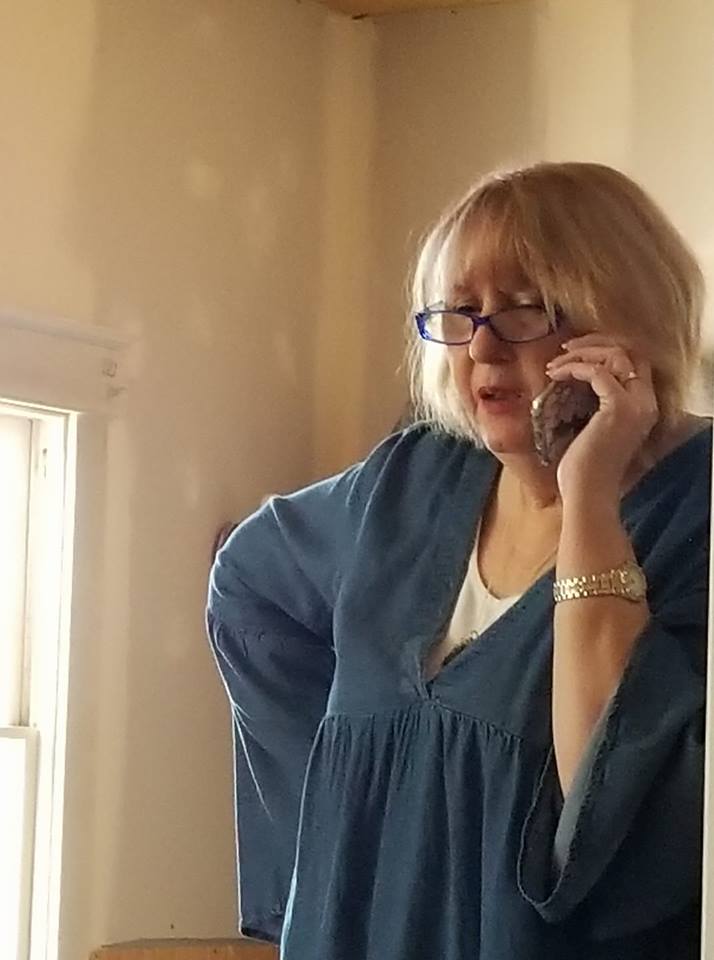www.firethroughspirit.com. What lies within your past? Past lives can come to me either in one very detailed description, if one life is of particular importance – or, if there is a theme that follows through, I may get several past lives, each one weaving a thread. This month I share one detailed life, and two situations where several lives give us a more complete picture. Question: Ours was an arranged marriage. It was love at first sight for both of us and we felt we had always known each other. We were inseparable. Ron was a very loving husband, father and son. His tragic car accident in Oct ’93 left me devastated with no will to live. However, we had brought our daughter Theresa into this world. She was a toddler, so I continued for her sake but it took me a few years to even meet people normally. I treasure those memories and time I had with him, even if it was just for four years. Why did we only have that short time? I feel so close to my daughter and I would do anything for her – did she plan this too? Nelly Corbie: Your relationship with Ron was the completion of a past life in the mid-1800s. In this life, you were both English, and Ron (Charles) was a well-respected captain in the 17th Leicestershire Regiment. You (Louisa) had had a tumultuous courtship, as you were a “wild child” who chafed against the strictures of your upbringing and what was to be expected of an army wife. This, too, was an arranged marriage: the two of you had grown up on neighboring estates and knew each other almost too well, and your parents felt it would be advantageous to combine the family holdings. But Ron/Charles had matured into a good-humored and exceedingly smart fellow, and quickly understood how to woo a very intelligent and headstrong woman as he got to know the woman you had grown up to be. By the time you married each other, the love was true and the bond was very strong. You both wanted to have children, but had some trouble conceiving. He was away with the army often, and so any time spent at home was precious, and full of lovemaking. You finally became pregnant, just before his regiment was dispatched to fight in the Crimean War. When you were roughly seven months along, you received word that he had been killed at the Siege of Sevastopol, which resulted in a premature birth. The baby did not survive, and you were so badly damaged in the process that it took you months to recover. You kept dreaming of Charles wandering through a fog trying to reach you, and were somehow convinced that if you remarried you would be condemning him to the fog forever, and so you stayed a childless widow, very broken in spirit and health. You were looked after by your in-laws, especially when the younger son married and had an heir, thereby ensuring that the land would continue in the hands of your husband’s family. You died of cholera in 1865. The daughter you have now would have been this child, which is why you feel the exceedingly close bond with her and the need to give her every advantage to make her way in the world. Question: Why am I in my current relationship with Brian? Why did we separate after high school? He was driven to find me; I didn’t think about him much at all. What are we teaching each other? How can I (we) be more peaceful with each other? Frances
Corbie: Frances, I picked up three lives for you! I will go through them quickly:
In Mozambique, in the 8th century, you were the children of rival chieftains, one landlocked, one on the coast. Your genders were the same as this life. The chiefs had long ago decided to marry their children to each other and consolidate their holdings, but politics, as it often does, got in the way: it was a constant and long-years game of promise/break/promise/war/promise. Finally, the two of you ran away to be together. This was flatly unacceptable and an insult to both tribes, so the two chiefs hunted you down and killed you to show the tribes that a chief could not be defied.
In the 15th century you were Bedouins and your genders were reversed. Brian was a talented female, whose father often bemoaned the fact that his eldest daughter was not born with “a staff to rule between her legs.” You were a man with many flocks who was married Brian’s sister. While there was nothing in terms of sexual contact between you and Brian this time he, as the talented female, ruled the family through insinuation, rumor and outright direction of your wife. This caused huge arguments and rifts in your family. You blamed Brian, but the fault was yours for not being strong enough.
As 17th century islanders in the Pacific, you were (same gender as this time) a widow and a widower, both with no children, who took on a group of children whose parents had been killed in a volcanic spill. You did not particularly like each other but had a common goal – to see that the children reached adulthood. You learned just as much about each other as you did about the children, and at the end of the widower’s (Brian’s) life, you exchanged vows on his deathbed, as he realized at the very end you were the most important thing he had found in his life.
Question:
Why did my husband, an alcoholic who battled it valiantly, finally feel driven to commit suicide?
Julie
Corbie: Julie, I get the overwhelming sense that your husband has been a frustrated leader or sub-leader for too long, with too many shots at responsibility thwarted by higher ups who knew nothing and cared less. It is as if his soul “shorted out” this lifetime.
I get a vision of 17th century Africa; he was one of the slaves taken very young from the area now known as Nigeria to a South Carolina plantation. Son of a local headman, he never forgot who he was nor what he owed his fellows. He was a ringleader: charismatic, and someone that the other slaves followed. He had a hard time with his owner, who did everything possible to degrade him, but the remembrance of his rightful place kept him going.
From here, goals of leadership and caring for others took first place in his prebirth makeup, and you were part of his learning trail.
I see the two of you in the 18th century military, Europe or Eastern Europe, arguing over a failed campaign, or one that is doomed to fail, yet you need to put your men into battle. You are one of your husband’s subordinates, the one who thinks carefully rather than brilliantly. He is nearly apoplectic that he will be unable to do what needs to be done. He is banging his fist on the table, and then curses fluently; an old wound is inflamed by his actions. He drinks – it looks to be vodka, a taste picked up when he was in Russia.
A second military situation is in the 19th century in India with the British Army. Upstanding, never taking to drink or “whoring,” he was rather Calvinistic in his views, and believed the “Wogs” (the British derogatory term for a native Indian) to be sub-human, and was very much buying into the Manifest Destiny idea.
During a siege, he was responsible for the safety of women and children. He did his best to see that they were fed and had water, but it was extremely difficult, and he was constantly frustrated that his commanding officer put his trust (misplaced, he believed) in the native regiments. Your husband was caught in a massacre, and died believing that if his superior officer had done the traditional thing – go to the most heavily guarded area of the town, realizing that the native soldiers would turn against him – they “would not now be lying in the mud.”
It is to be hoped that, when you and he next plan your lives together, he will find the strength to walk through his story to the end, having learned both love and leadership with you by his side.
While he came in to have a less “responsible” life, he did want to attempt to be less emotionally thrown by betrayal (or perceived betrayal) of those he loved or for whom he was responsible. The double death of relations on his birthday could either trigger resilience and a renewed love of life, or (as it seems to) become one more “look what people I love/life does to me.”
You also might be interested in
I was a poll worker for the primary election on March 3, 2020.
About Bellesprit

Bellésprit (pronounced bell-e-spree) was born out of a desire to educate those who seek to expand their knowledge along their spiritual path. Featuring many contributors who are experts in their field, Bellésprit has a little bit of something for everyone who desires to learn more about spirituality, metaphysics, and the paranormal world.


